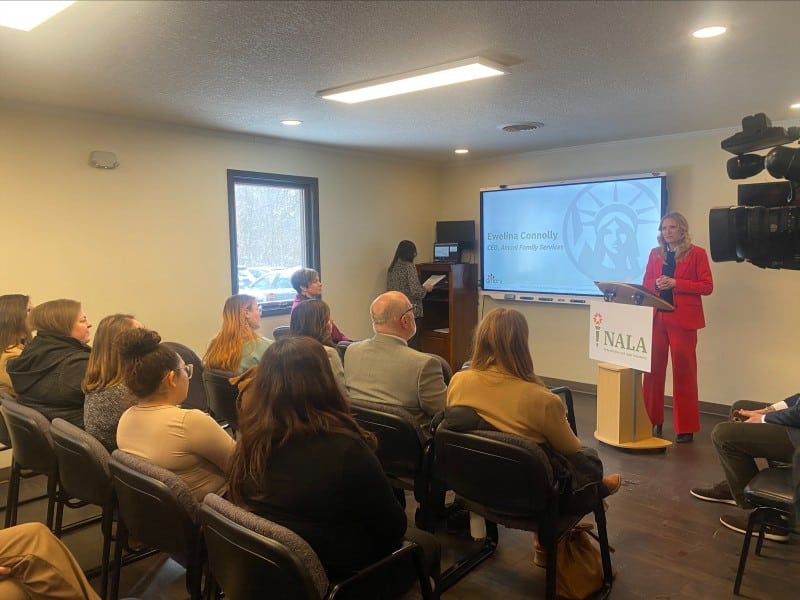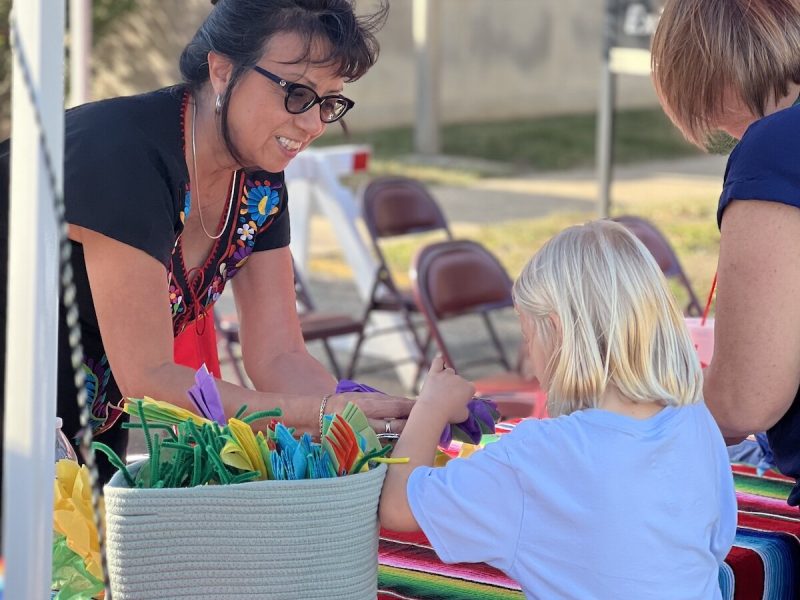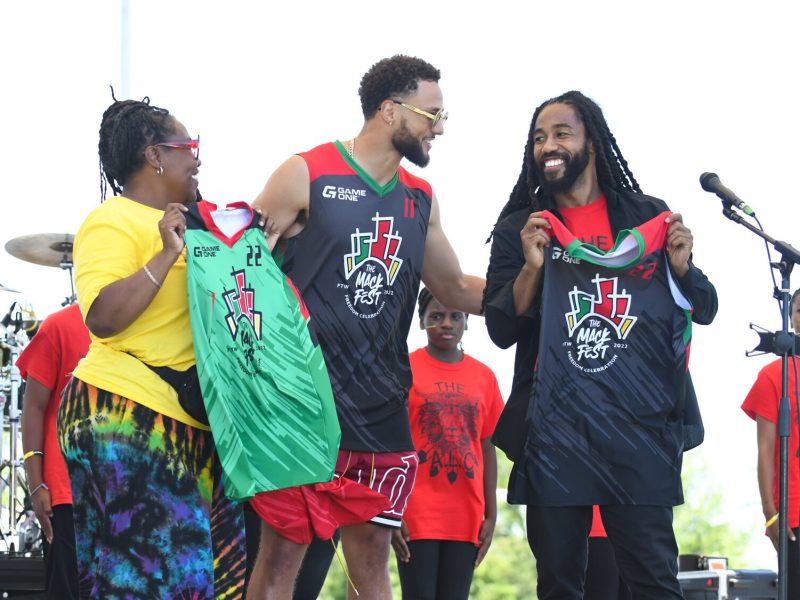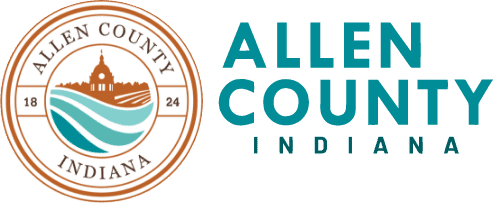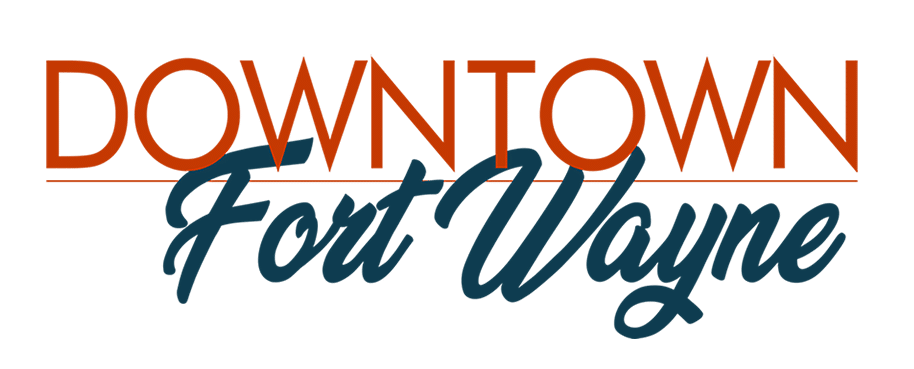Q&A: The mother who started Fort Wayne’s George Floyd protests shares her story
What started as a Facebook group to support Black-owned businesses in Fort Wayne evolved into protests that will go down in local history.
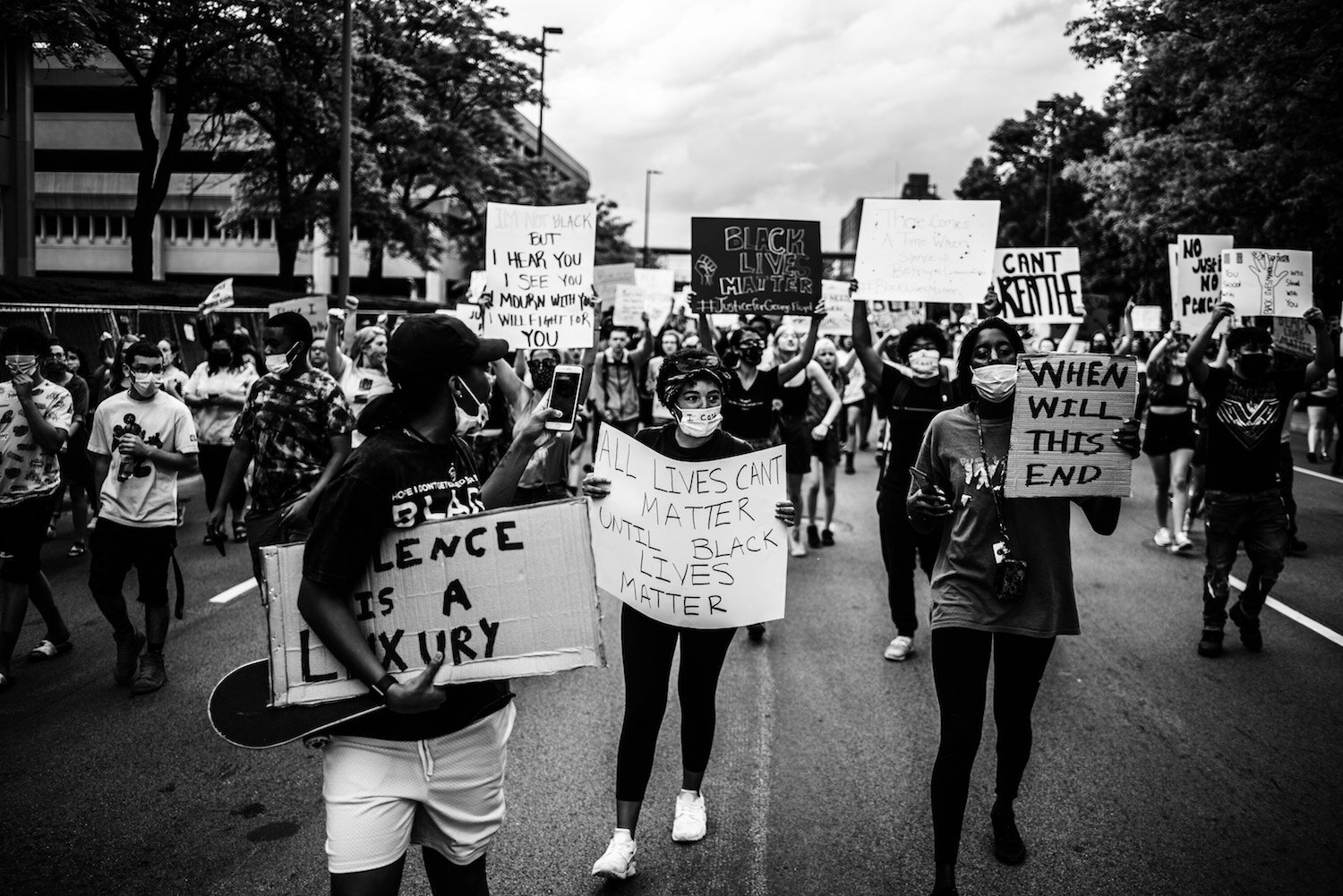
When Alisha Rauch started a Facebook group to support Black-owned businesses in Fort Wayne, she didn’t realize it would evolve into a protest.
She just knew that something needed to happen.
“I was tired of not doing anything,” Rauch says. “I wanted to find ways that we could up lift our community, and I wanted to be heard. I thought, ‘For so long, I’ve just been sitting back. I have to do something; I have to get involved somehow.’”
So as a working Black mother in Fort Wayne, with two jobs and four Black boys to care for, she started a movement that will go down in local history.
After two days of protests that unexpectedly ended in tear gas and 12 days of nonviolent protests thereafter, Rauch has much to say about the movement toward greater equity and racial justice in her beloved hometown.
It’s a movement that is far from over—and demands actionable change on the part of the city and local law enforcement.
Input Fort Wayne sat down with Rauch to hear her story, learn what changes she thinks needs to happen in Fort Wayne, and hear what’s giving her hope for a brighter future here.
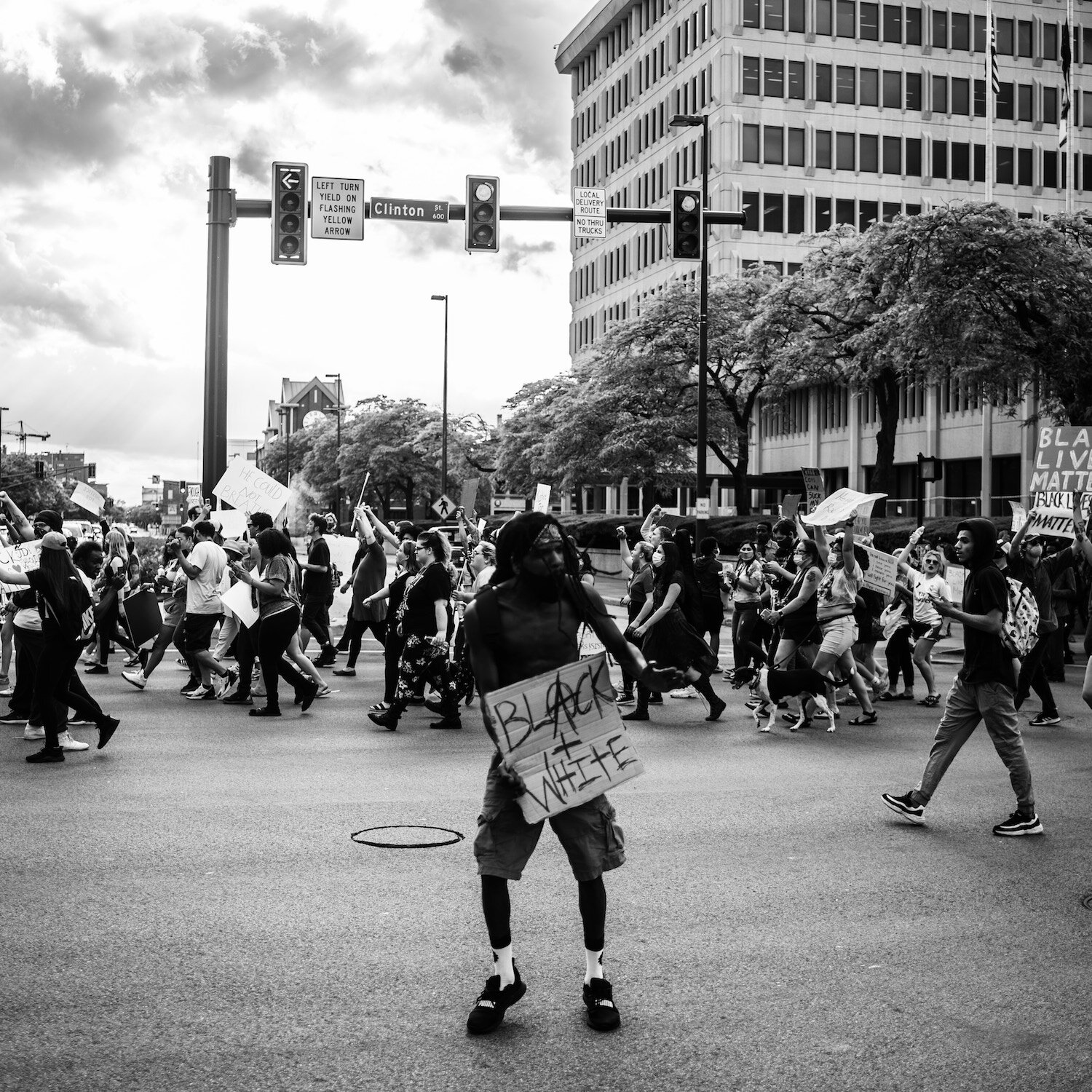
IFW: Tell us a little bit about yourself and how long you have lived in Fort Wayne.
AR: I have lived in Fort Wayne all my life. Born and raised. I have four kids here, four boys, and I organized a protest because I was just tired of not doing anything.
I am Black. My mother is white, but my dad is Black, so I claim that.
We keep hearing about (Black people being killed in the news). Then it goes away, and nothing ever happens.
I’m not usually a community organizer or anything like that, but the murder of George Floyd just hit me, and I thought about my own kids. That video was so gruesome to watch. That could be them.
It was like a national call to action to stand up and be heard and let people know that we are not going to take this anymore. It was an emotional thing, and I felt like we needed to back our Black brothers and sisters all over the country and the world right now.
So I started a group called SHOP Fort Wayne and Surrounding Black-Owned Businesses to promote the Black-owned businesses in our own community.
IFW: Why a Facebook group to support Black-owned businesses?
AR: I was trying to come up with ways I could make some kind of change and connect people. Just to show support.
We’re not just mad about what happened to George Floyd. That’s what inspired this movement, but it’s about so many different things, including economic disparity. So I thought: There’s got to be something I can do that will help the Black community here. What will actually make a difference?
Drawing attention to Black-owned businesses is something I can actually do that can help.
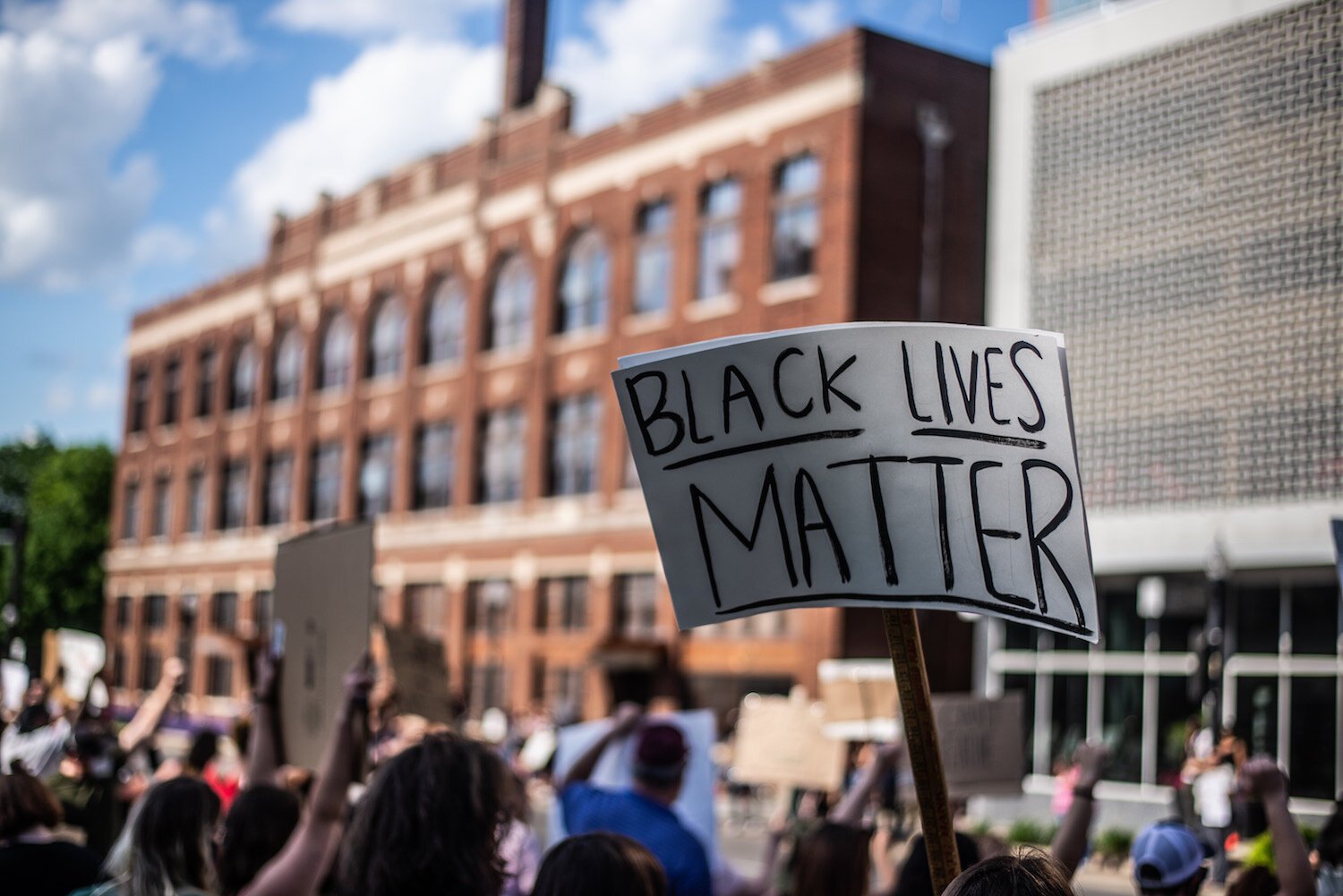
IFW: You’ve lived in Fort Wayne for a long time. How have you seen the city and local businesses evolve over the years?
AR: I lived on the South Side of Fort Wayne for a long time, and right now I live directly North of downtown. I love our city. I just think that the hardest hit communities need a little more support. I’ve seen African Americans on the South Side trying to trying and striving to get the South Side unified and also get their own businesses stated up, and it seems like a lot of times they’re not getting help. Or at least, they’re not getting the help that other businesses are getting. For instance, the Utopian Community Grocery has been working very hard to get going in Southeast Fort Wayne, and they’ve applied for grants, but they’ve been turned down. Ty Simmons is a leader in that group, and he’s giving so much back to this community. On top of that, we need groceries; we’re in a food desert, so it makes no sense that he’s not getting support.
Right now, most of the businesses in our community are owned by people who are not Black, and in the Black community, we should be able to support local, Black-owned businesses and shop within our community more often.
IFW: Tell us how the first protest on May 29 started.
AR: I was the organizer from the beginning. It was just me, myself, and I. I am a part of a lot of little groups on Facebook and what not. I had started the SHOP Fort Wayne and Surrounding Black-Owned Businesses group, and that was gaining momentum. So I just utilized all the different groups and the people I knew. I was just like: Share, share, share. We need to rise up now and be with our brothers and sisters and support them because Black people are going to keep getting killed until we do something.
A lot of times the opinion is, “You know, well, another black person died or was killed or murdered.” But I don’t think it hits you until it’s close to home. But the thing is: We don’t want to wait until it is close to home. That’s why we had to act now.
Some people say: What is protesting going to do? But we’ve seen results. All four officers at the scene of George Floyd’s murder were changed, and now they’re talking about defunding the police in Minneapolis and redoing everything. Some of those things would not have happened if people didn’t show their outrage. I think that, as people, protesting is our biggest weapon. People in power don’t like it when we’re out there protesting. That’s one the biggest ways we can demand change.
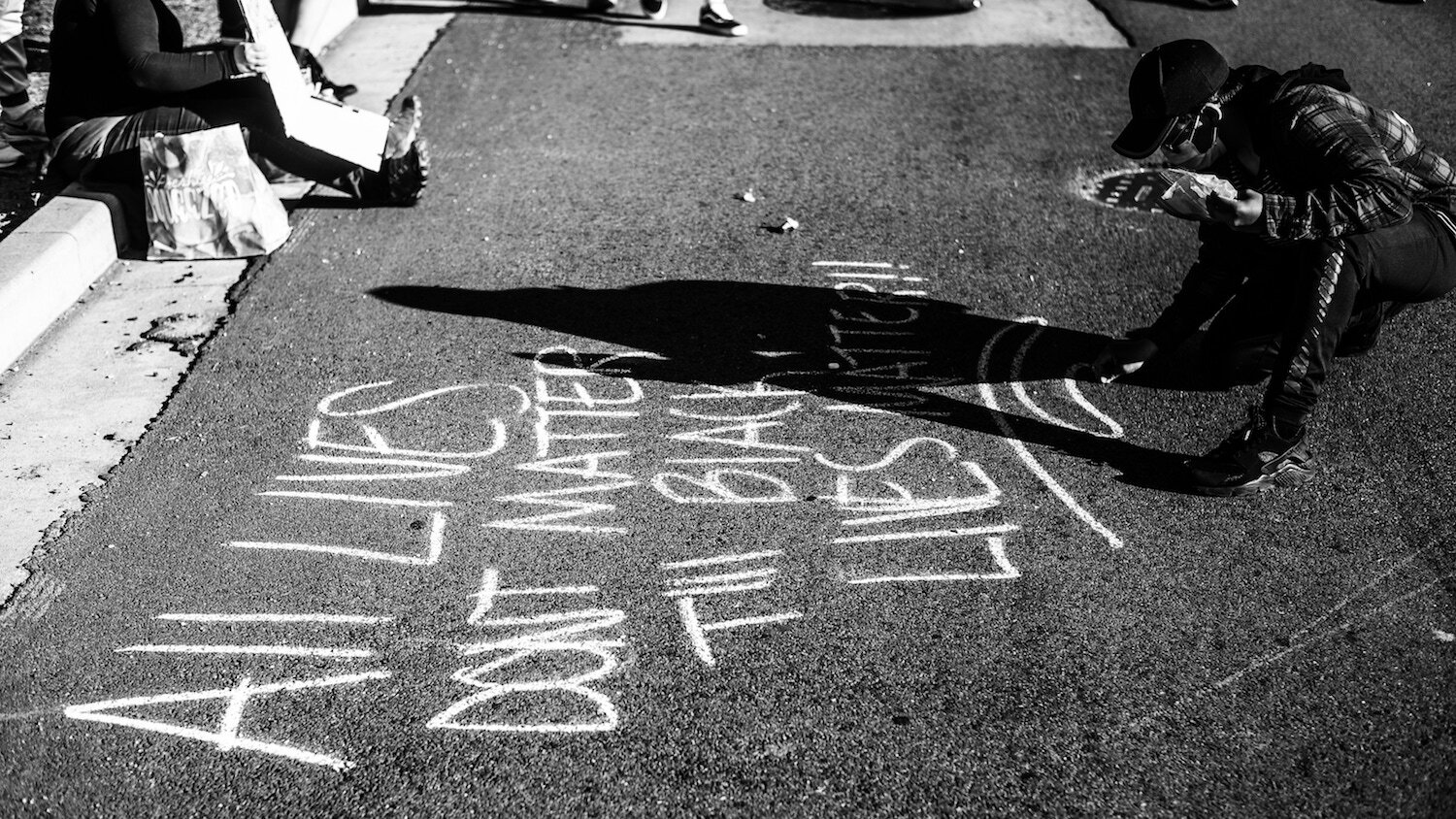
IFW: When you started calling for a protest, did you realize how big it was going to get?
AR: I really did not know that it would be as big as it was. That’s the biggest protest I think we’ve seen in Fort Wayne. Period. I did not know that may people would actually come out, but when I look back on it now—and how on edge and tired and fed up everybody was—I can’t really say that I’m surprised.
People just want to be heard. It’s time. It’s time. And I think it’s going to bring a huge change. This is going to be a part of history, and changes are going to happen. There‘s no away we’re going to walk away from this and just forget about it and move on like we have in the past. Changes are coming, and there’s too many people organizing and getting involved and wanting to be part of the movement that I don’t think the momentum is going to stop anytime soon.
IFW: In thinking about the responses to the protests so far in Fort Wayne, how are you feeling?
AR: We haven’t seen any action yet. I think that everyone is getting it together and trying to get organized and come up with ways we can change. But I don’t think the Mayor’s comments, saying there’s going to be action, is enough. That’s an open-ended statement. What action are you going to take that’s going to make us feel better about the situation? He didn’t give us specifics or tell us what he’s going to do. That’s what we need.
IFW: What are some ideas you have for actionable change in Fort Wayne?
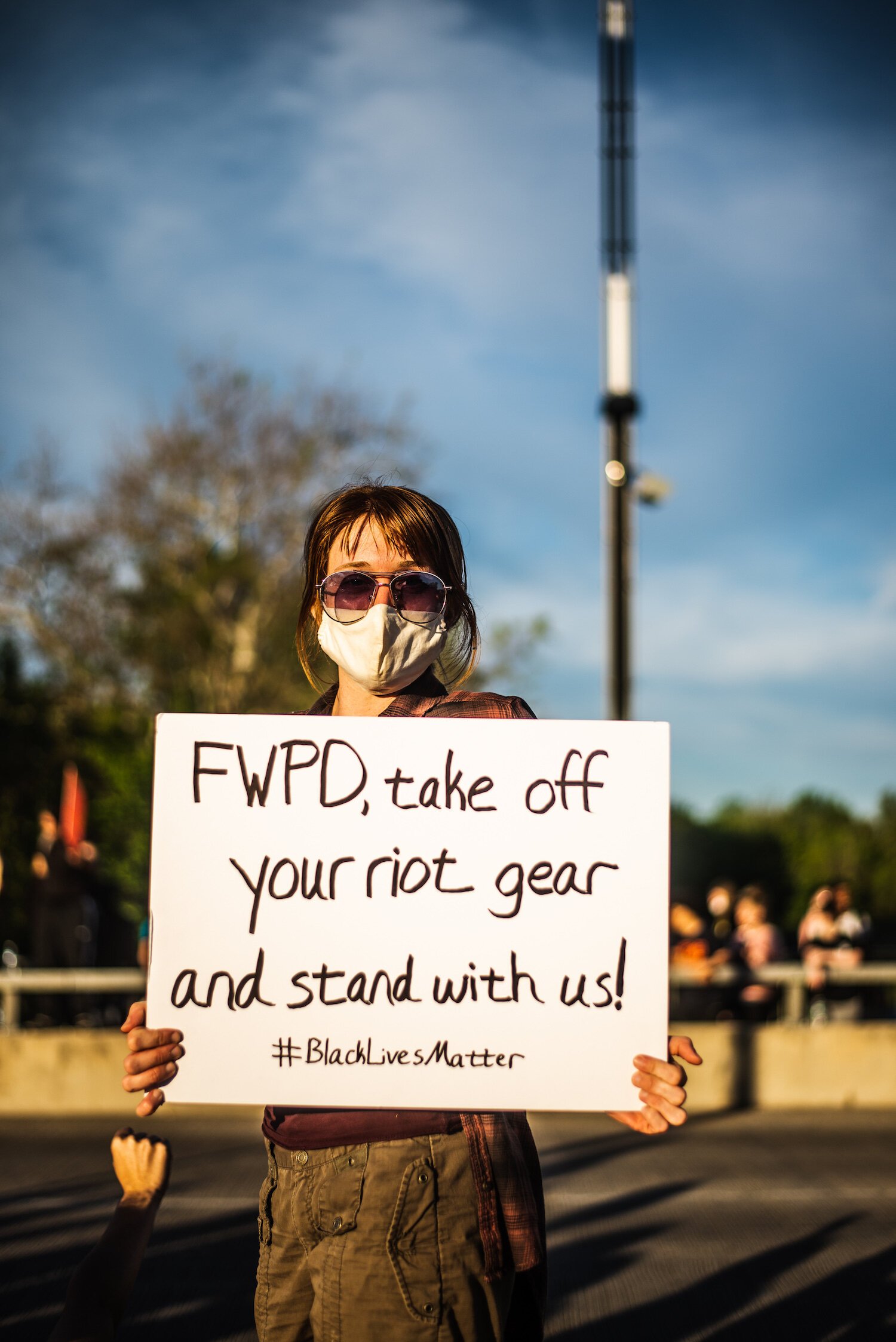
AR: I think a review of police policies, as far as use of force, is important. I think another thing they could do would be reviewing the types of people who are hired to be police officers in the first place.
A lot of times we see people of color killed or treated unfairly by police, and then the next thing you know, it comes out that this police officer has public pictures on Facebook wearing hats saying: “Make America White Again.”
To become a police officer, you have to go through background checks, and drug tests, and all of these intense screenings, and yet they don’t have the time look at your Facebook page and check it for racism?
We should be looking into our police officers’ backgrounds. How can we have non-biased police when there are racist officers on the police force, and they’re patrolling our communities?
That’s another thing: Some of these police don’t know our community. I think another thing that would be beneficial would be if we had police officers patrolling our neighborhood who were a part of our neighborhood, so they know who the people are there.
IFW: When the police confronted protesters on May 29 and 30, the protests ended with residents getting tear gassed. Tell us about that.
AR: It was just crazy the first night because I really didn’t even know when it got out of control. It happened so fast. I wasn’t even aware of it, you know.
With the protests, people were blocking traffic because blocking traffic is being like, “Hello, do you see me now? I’m here, and I want to be heard.” So that’s the whole point. If you don’t disrupt something, then what are you doing? That’s what we’re here to do.
I had no clue what was happening when people started running. I didn’t hear anyone say, “You need to disperse.”
I even had to ask someone: “Why are you running?” And then my next breath in was all tear gas, so I took off running with everyone else, and it was dangerous.
We had disabled people there; we had pregnant women there; we had elderly residents. So to not get any warning about the tear gas, everybody started taking off, and people started getting trampled.
We just had no idea to expect tear gas. I’ve been downtown to protest on numerous occasions before, and I’ve never experienced that.
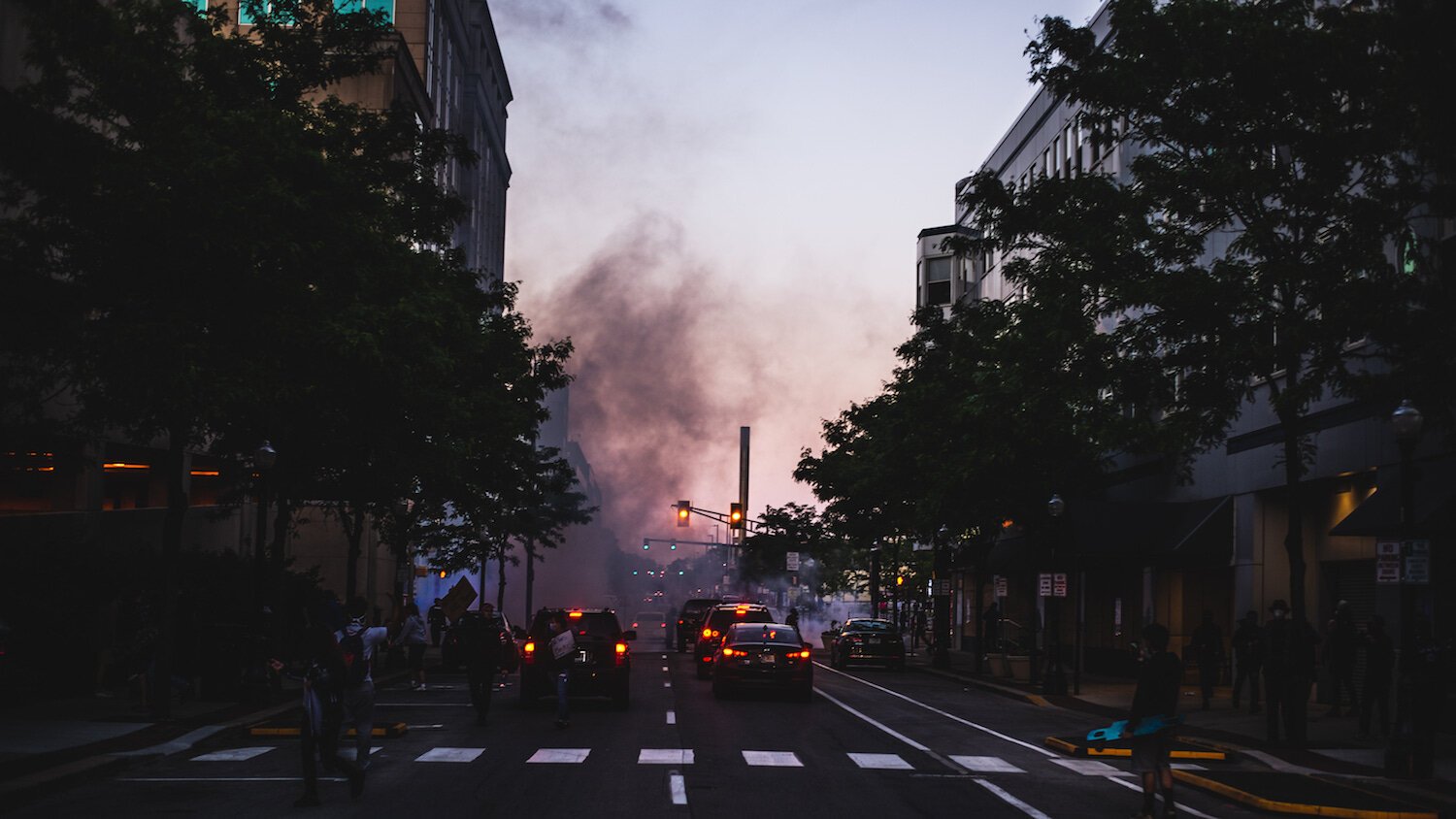
IFW: If you could talk to the Mayor of Fort Wayne, what would you say?
AR: I would say I think he really needs to have a conversation with the people in this community. I think he needs to give us real, actionable items that he’s going to work on. I think it all comes down to him knowing the community that is being oppressed in Fort Wayne.
It seems like we have so many opportunities to make things better, like with the Utopian Grocery, yet we have no one on our side when it comes down to it.
I think a lot of people look at it like, “The city is trying,” but they don’t really see what the city is doing here. We don’t see results. We need someone who can stand up and show us: What are you are going to do for us? How are you going to help us make these changes? The city needs to understand where we’re coming from and why we’re so frustrated.
We also need an apology for the way the first two protests ended. It makes us feel like we’re being seen, like we’re being heard. We want you to acknowledge what is going on, and say, “Yes, this is faulty, and this needs fixed.” Instead, everyone is looking at what’s happening after the protests (the rioting and looting) and trying to pacify things. But they’re not looking at the root of the problem here. They’re looking at what happens negatively after these problems are already affecting us.
IFW: Has this entire experienced changed the way you feel about Fort Wayne?
AR: I don’t think it’s changed the way I feel. Maybe it has in the sense that I have met such a huge diverse and intelligent group of people just in the past week who are so passionate about the same things that I am passionate about, so it’s given me hope.
To see people here with the same views and thoughts, wanting to make a difference and make a change, those things have made me feel so much more hopeful that right now we’re going to make something happen.
It’s amazing to see what people can really do when they’re passionate about something and how we come together. That has changed my whole outlook on people in Fort Wayne. When you attend these protests, you meet so many different people. The actual amount of diversity here is crazy.
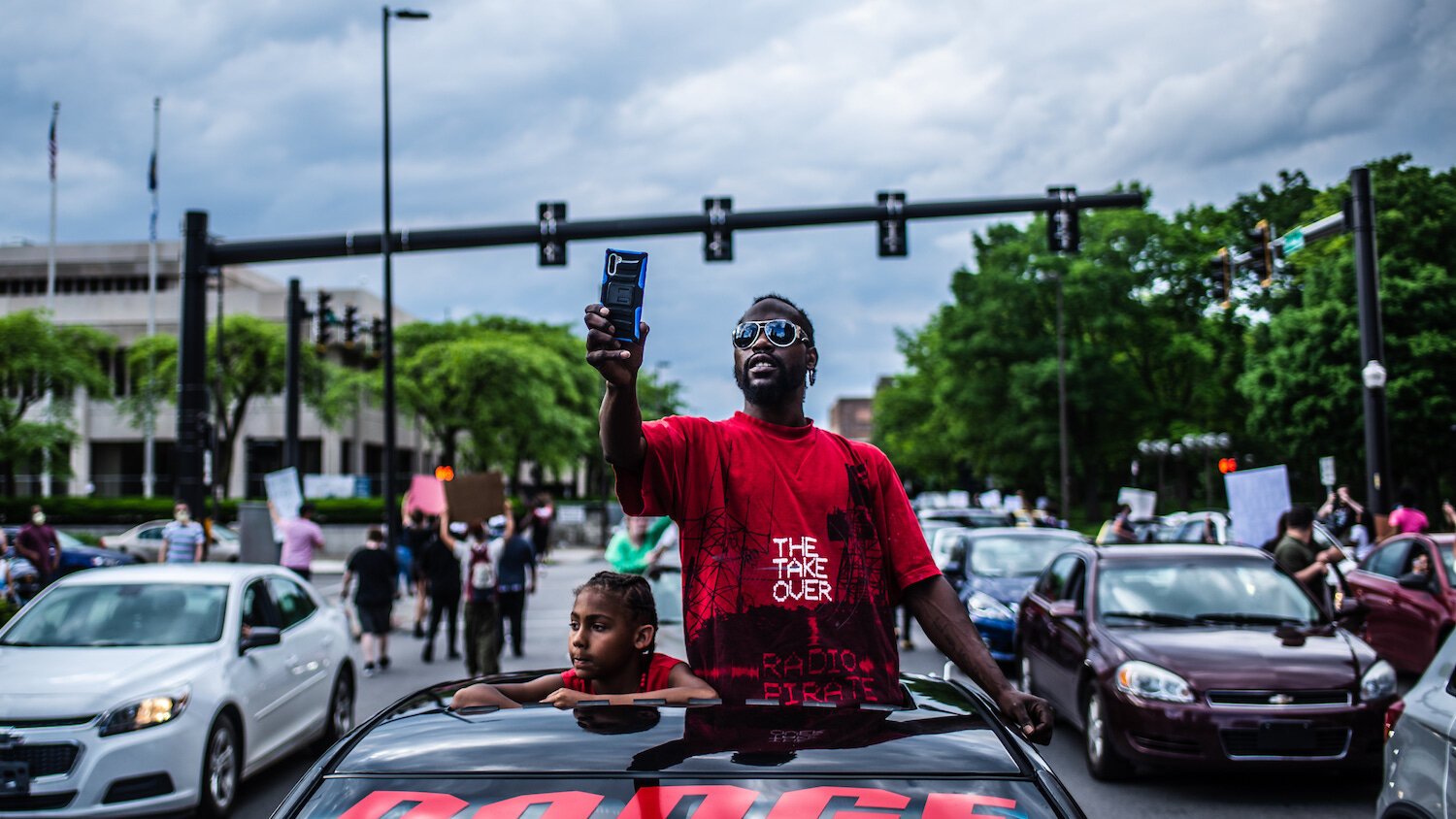
IFW: Are you still attending the protests every day?
AR: I think I have attended four days now. I wasn’t able to attend as much as I wanted to, but I still try to make my way down there and drive by and honk to show my support.
IFW: In addition to the protests, your Facebook Group for Black-owned businesses is still going strong. Tell us more about that.
AR: I never knew we had so many Black-owned businesses in Fort Wayne before. The only thing we’re missing is a grocery store and gas station, but if we had those, we wouldn’t need to leave our Black community to shop at these large, chain stores. It’s amazing how many people are out there with their crafts and different things—t-shirts, wedding planning, photography, you name it.
We want to support our community, and give people hope to expand their businesses. If we can do that, I think the possibilities are endless.


